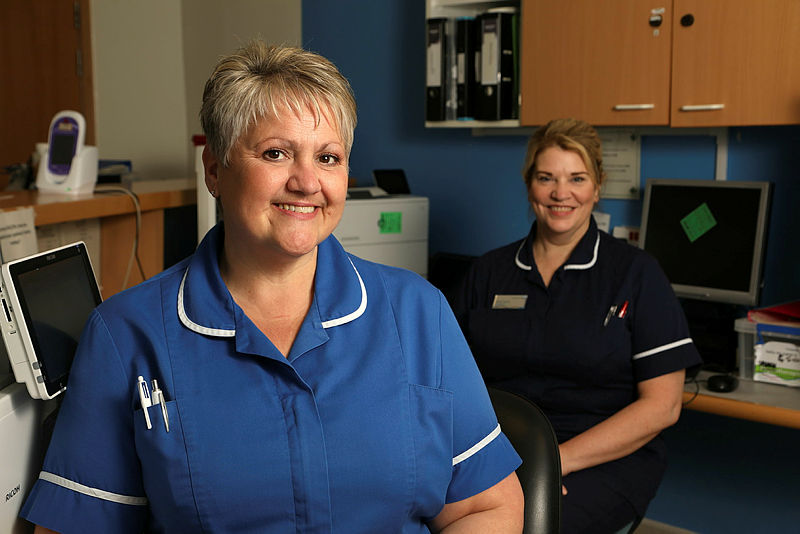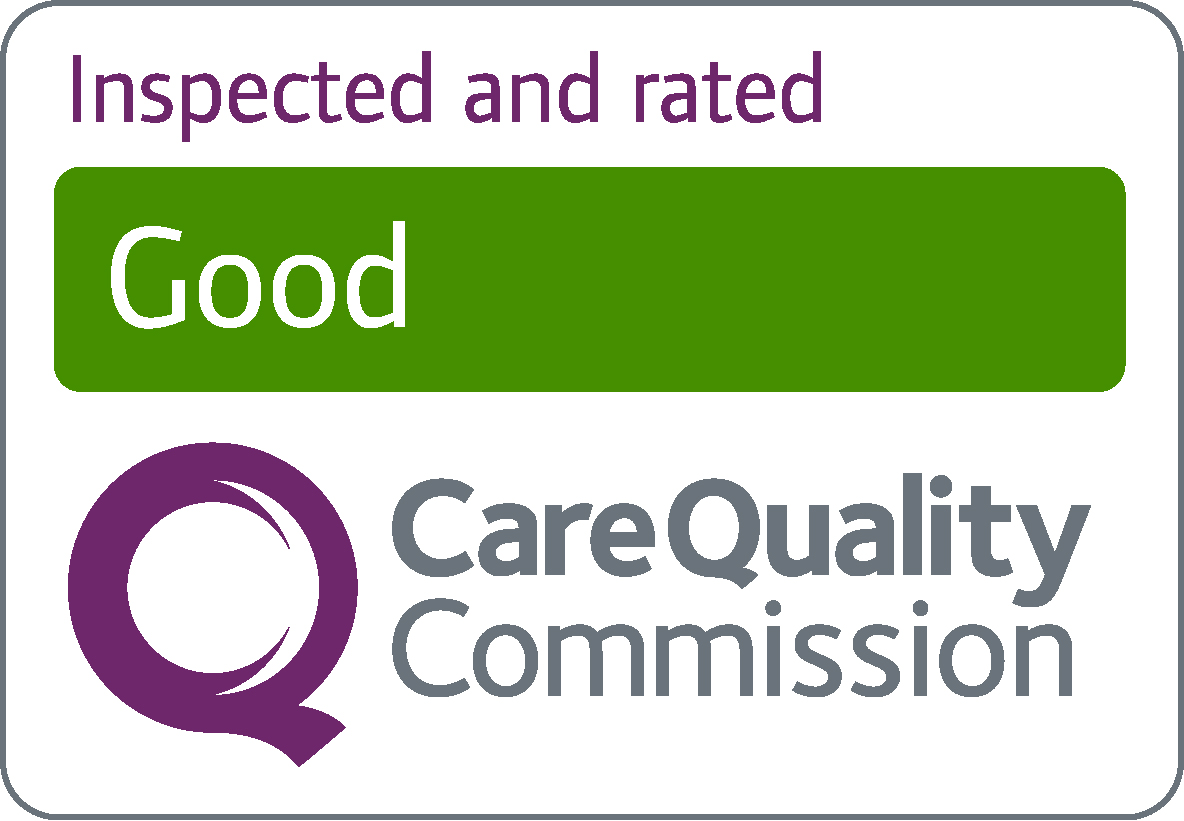ICCU support group keen to expand
Date of release: 26 September 2024
Leaders of a group for people recovering after intensive care in Wolverhampton are hoping to expand their service.

Jacqui Burns (foreground) and Vicki Hartmann behind
Vicki Hartmann, Senior Sister on the Integrated Critical Care Unit (ICCU) at The Royal Wolverhampton NHS Trust (RWT), has led the Critical Care Follow-Up Clinic and Support Group since 2018 and runs both services with Jacqueline Burns, Sister.
The Critical Care Follow-Up Clinic was set up in 2013 by Dr Shameer Gopal, Intensive Care Consultant, and Sara Lawley, former Nurse Manager of ICCU at New Cross Hospital. They wanted to offer support to patients who have spent time on the unit.
A support group was then set up in 2015 to allow ex-patients and their loved ones to share their experiences together.
Eight to 12 patients a week should be using the follow-up service, but currently only three a month are able to be seen.
The clinic runs once a month on a Wednesday and the support group on a Monday, every other month.
Patients are currently assessed via a post-traumatic stress questionnaire, and if they trigger on that, they are offered a face to face or a telephone clinic appointment. The patients are then invited to attend the Support Group with their relatives.
“We want a gold-standard service for rehabilitation and the follow-up clinic, and I’d like the option of face-to-face or virtual appointments,” added Vicki.
“We’d like to expand the service to include the rehab team and give more patients access to the clinic and support group.”
Rehabilitation can include Physiotherapy, Occupational Therapy, and Speech and Language Therapy.
The ICCU has full-time cover for these services which continues once the patients are discharged to the ward but not in the clinic.
A stay in critical care can affect patients in different ways and can be a frightening experience.
Most patients have been seriously ill; they might have been sedated and had many different medications to allow them to recover.
They are often severely sleep deprived too and because of all these factors can suffer with delirium, hallucinations, nightmares and paranoia. The impact of a critical illness can lead to problems for months afterwards.
Patients can develop Post Intensive Care Syndrome (PICS) – a combination of physical and mental problems such as muscle weakness, imbalance, memory loss, depression, anxiety, Post Traumatic Stress Disorder (PTSD), continued poor sleep, sexual dysfunction and a loss of appetite.
“We also do a general assessment and if I think they need any other service, we can do referrals direct to the appropriate teams and psychological support with Black Country Network Psychology Team,” said Vicki.
“It is such an important service that acknowledges the traumatic experiences the patient has been through and gives support to those that need it.
“We get them to talk about their experiences and about what they remember and what they don’t, because there are a lot of ‘false’ memories too.
“For some patients, it’s a relief to know that what they’re going through is quite common and they’re not on their own.”
Patient diaries – introduced to the unit by Vicki and completed daily by the nurse looking after them – are kept by the patient’s bedside and journal their stay in ICCU.
“The patients are very grateful for them once they are discharged as it helps to fill in any gaps in their memory,” added Vicki.
Entries include their treatment, but also what is happening in the outside world and messages from family and friends.
Patients and relatives are also offered a return visit to ICCU. Further visits can be arranged.
Some useful links are:
ICU Steps
Critical Care Recovery
Critical Care Support Network
ICU Delirium
Sepsis Trust
ENDS
- For further information, please call Tim Nash on 07714 741097 or email tim.nash2@nhs.net

